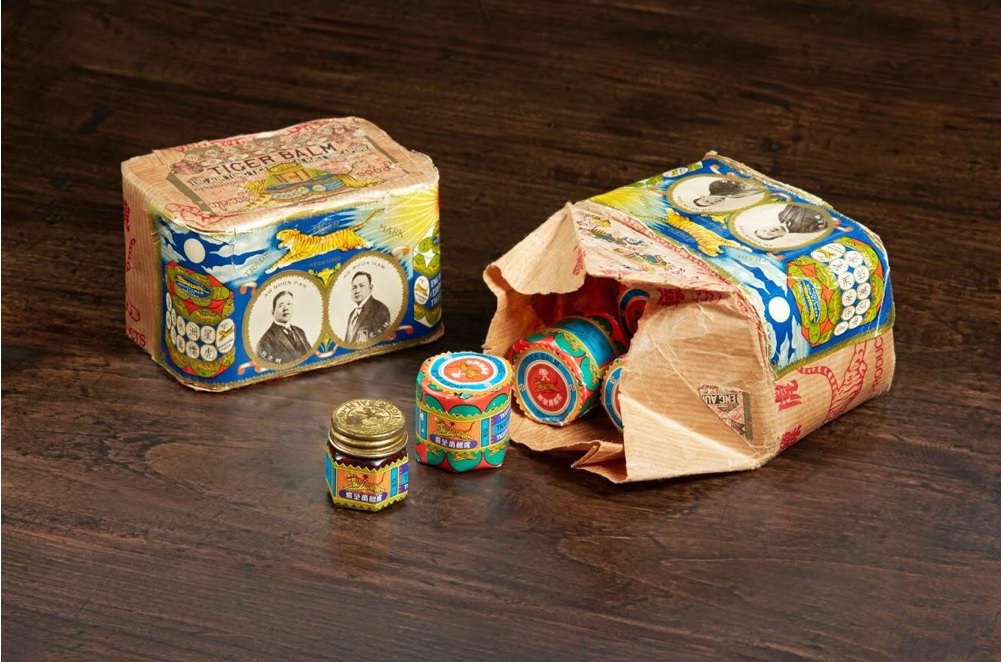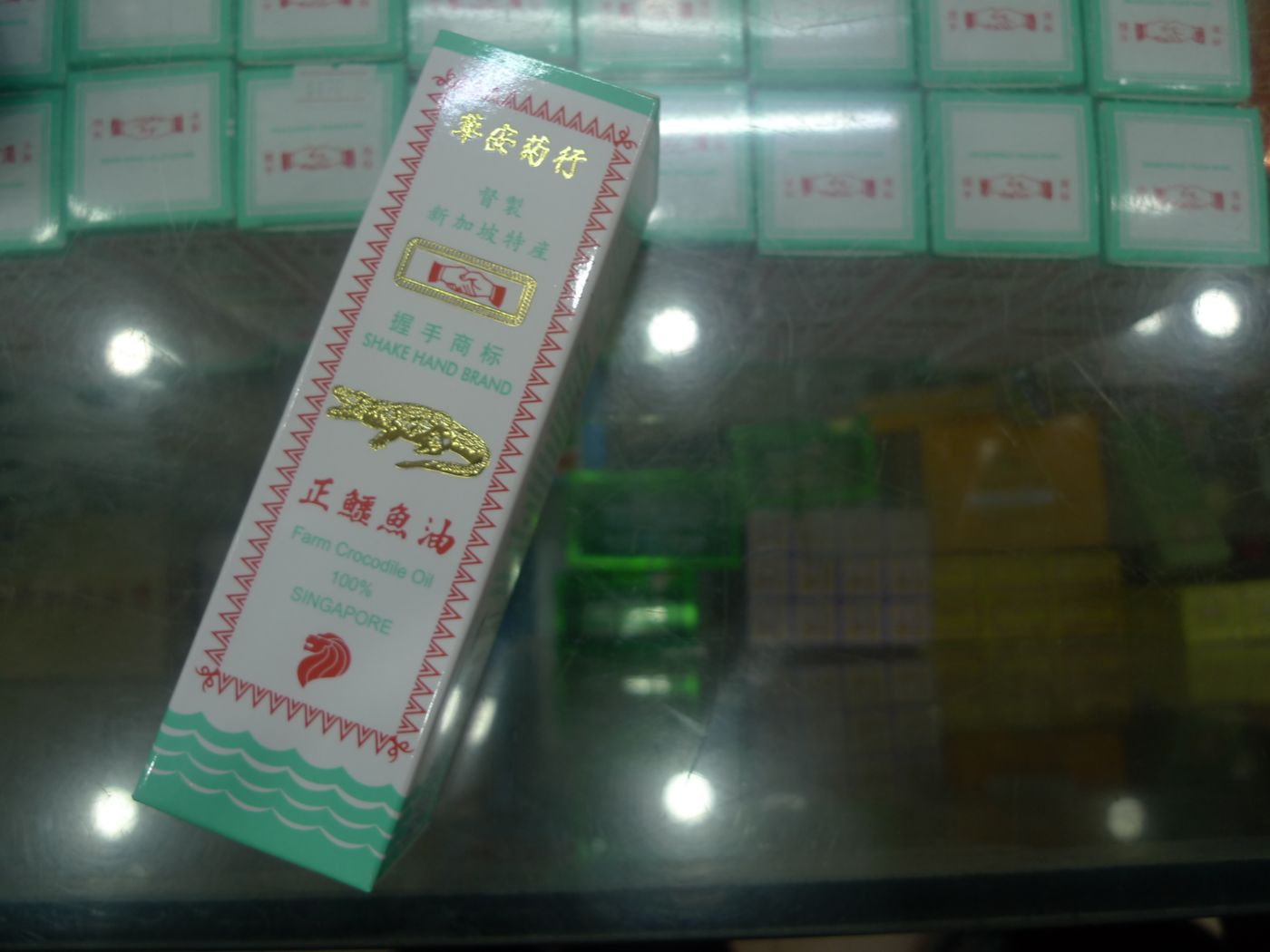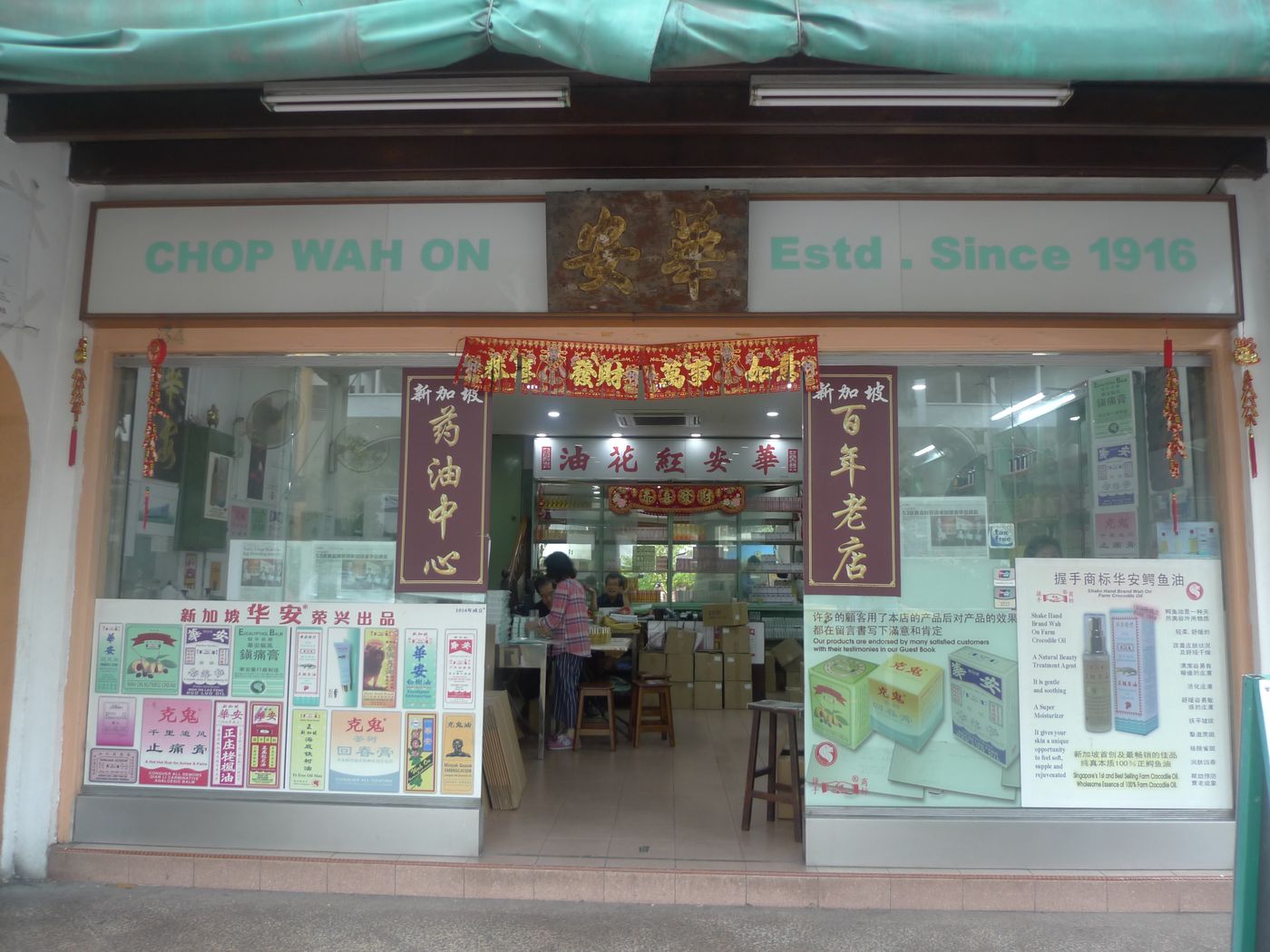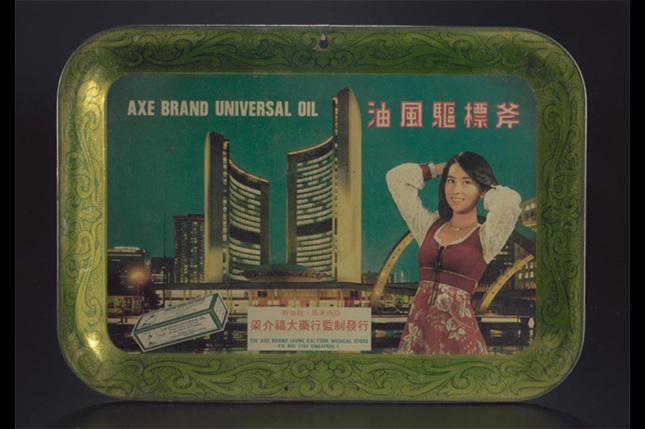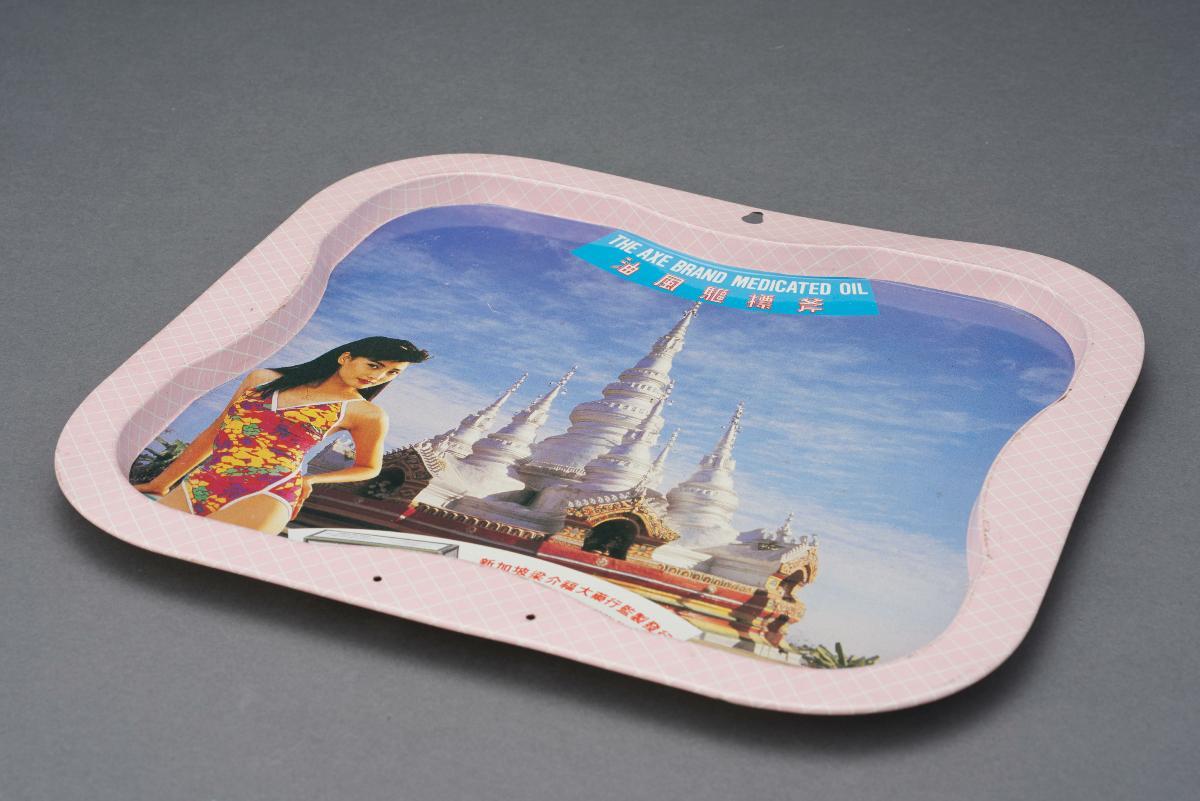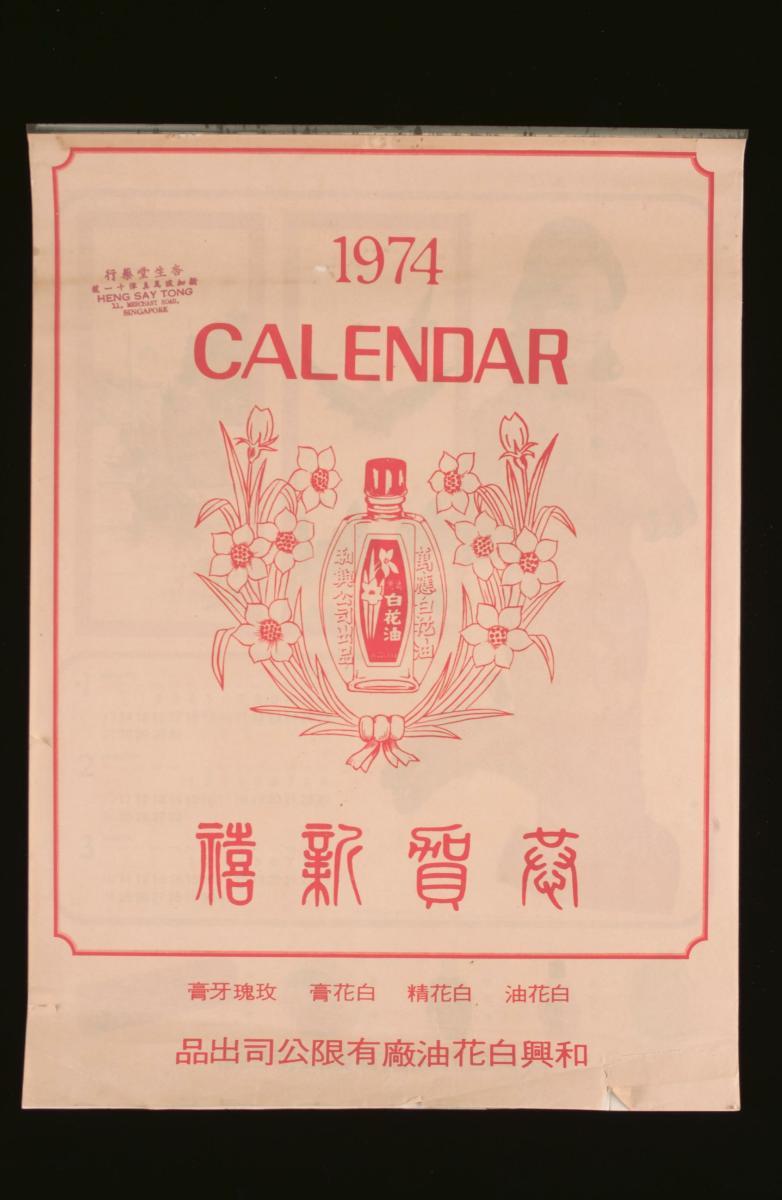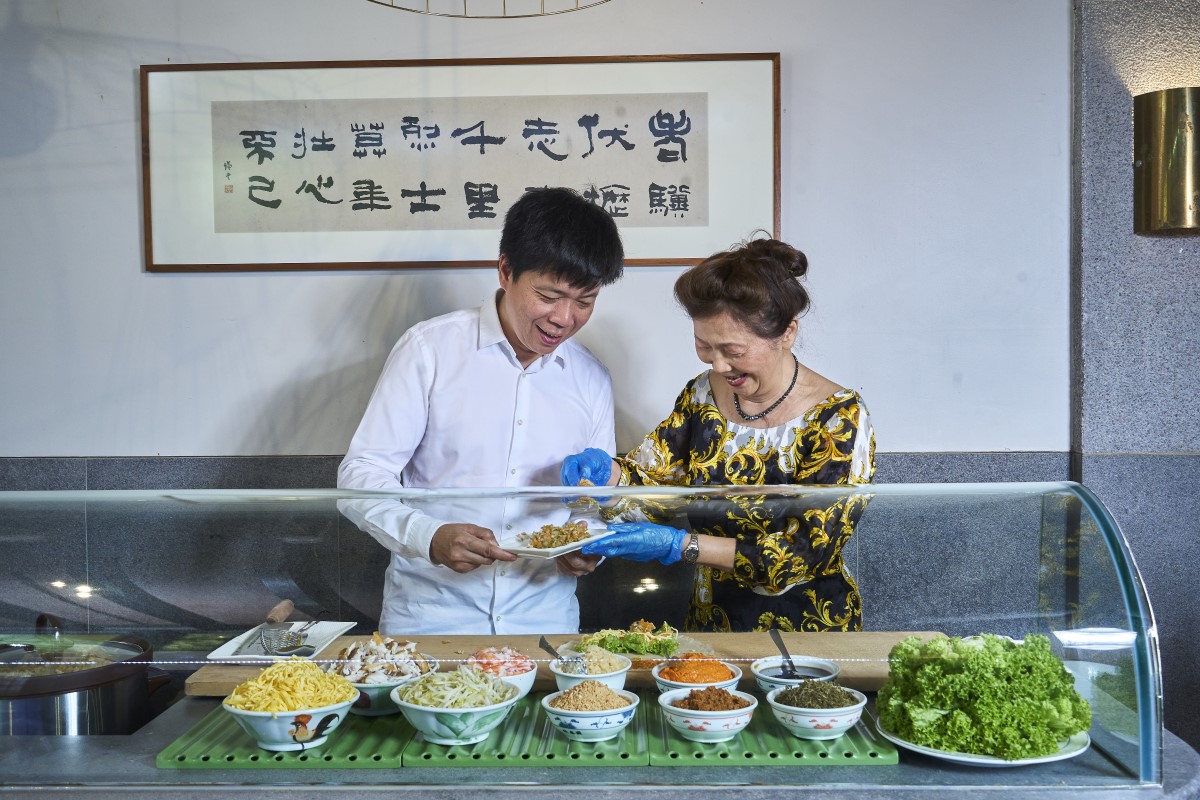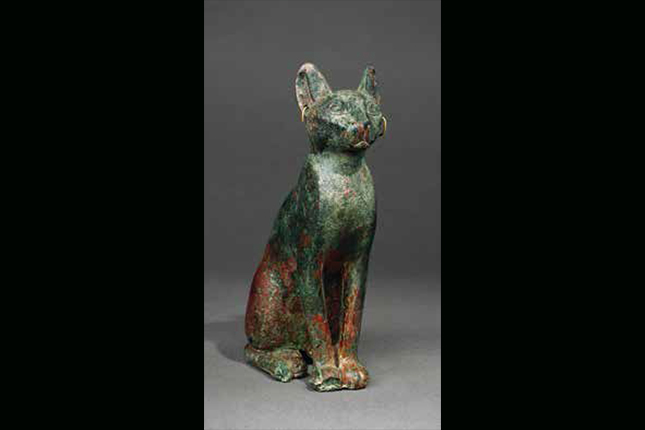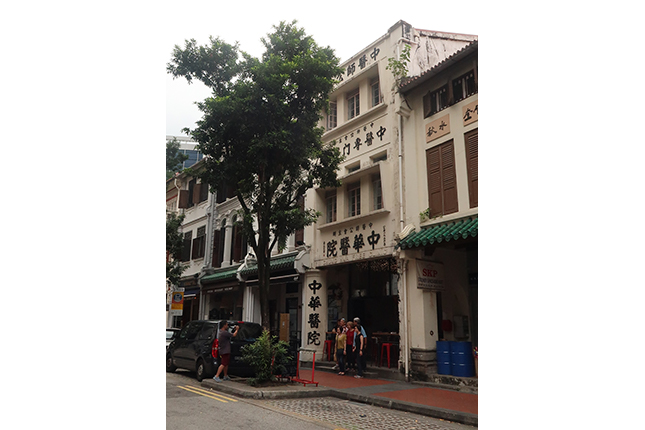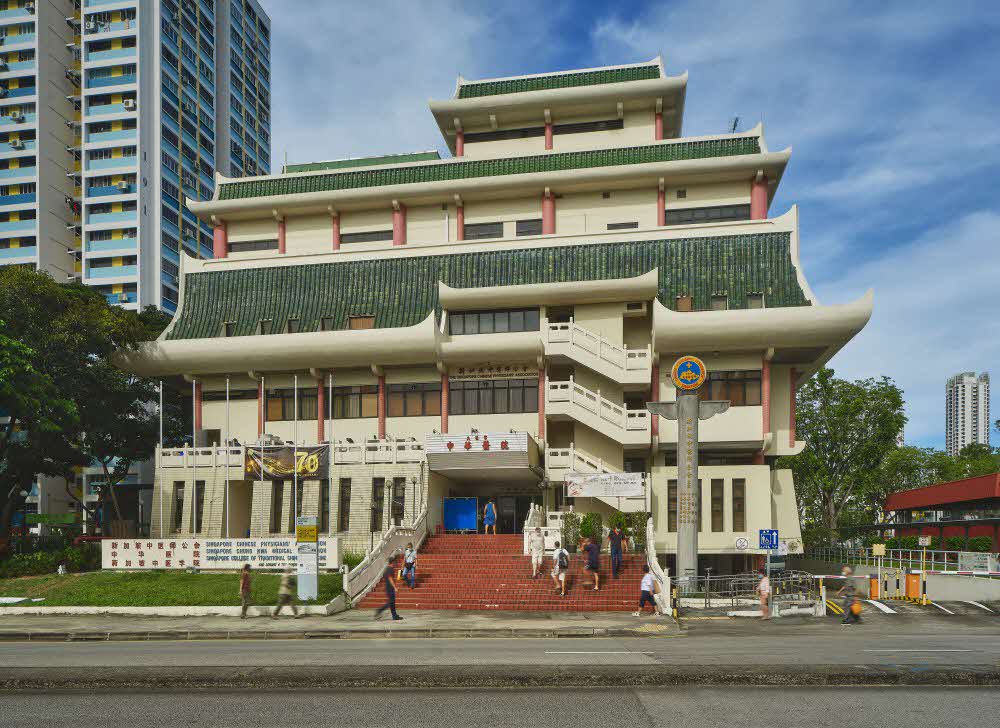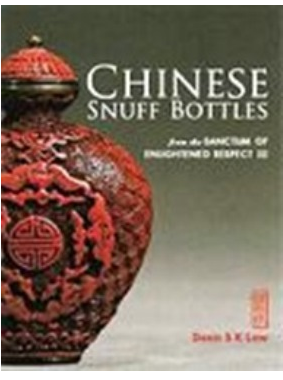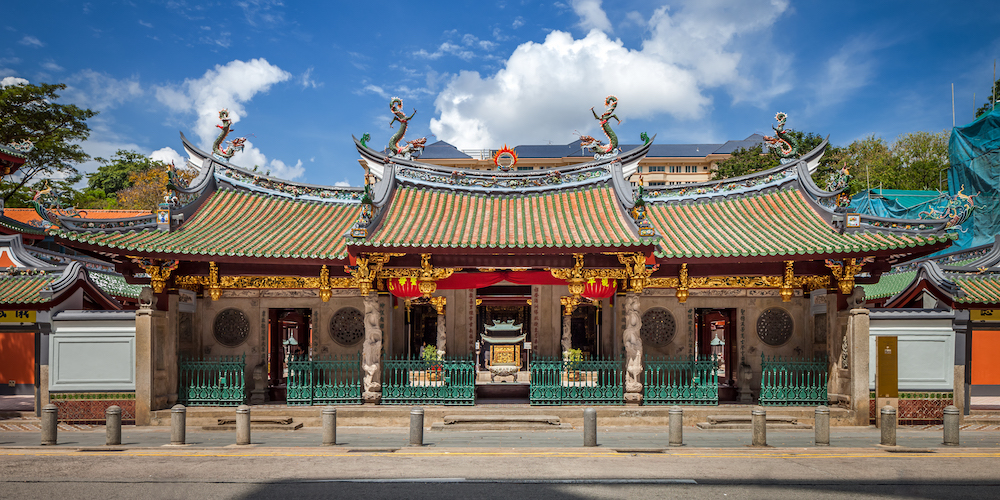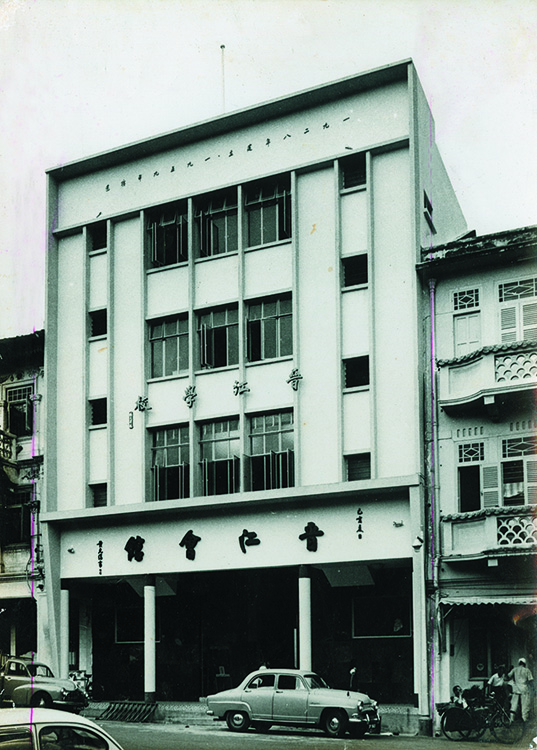Making of Chinese Medicated Oils
The formulations of Chinese medicated oils are derived from practices of Traditional Chinese Medicine (TCM), a stream of medicine rooted in the Chinese philosophy of balance between the forces of yin and yang. Medicated oils are made from ingredients such as eucalyptus, menthol, camphor, and other essential oils. They tend to be affordable and treat everything from aches and pains to eczema.
Chinese medicated oils have been manufactured in Singapore since the early 20th century. Makers of Chinese medicated oils chose Singapore as a strategic site of production for two reasons. First, the availability of raw ingredients. Medicated oils use ingredients from different parts of the world. The entrepôt trade of Singapore in the 1900s, which included the trading of essential oils and other medicated items, was and remains ideal for production. Second, Singapore had a ready market as migrant workers from China were familiar with the use of medicated oils. Buying a bottle of medicated oil for a few cents was more affordable than visiting the doctor, and also a natural remedy for the chronic aches and pains most migrant workers suffered from.
Geographic Location
Chinese medicated oils are found in China and in parts of the world with Chinese diaspora. In Singapore, Chinese medicated oil can be purchased from pharmacies, TCM clinics, medical halls and provision shops in neighbourhoods.
Communities Involved
Beyond the Chinese community, various ethnic groups in Singapore use the medicated oil in their everyday life to soothe ailments.
Many manufacturers of Chinese medicated oil brands in Singapore started as family businesses and some have continued run as such. Medicated oil brands in Singapore with long history include Axe, Eagle, Tiger Balm and Chop Wah On, among others.
Associated Social and Cultural Practices
Medicated oils were developed to suit the climate in the tropics and ailments specific to the region.
Manufacturers of medicated oils in Singapore gradually incorporated formulas used by other ethnic groups, such as the Malays whose medicated oils contained citronella oil, thus creating their own blends.
Though the oils continue to adapt to society’s needs and changing demands of customers, many of the Chinese medicated oils remain rooted in medical records used in traditional Chinese medicinal practices.
Experience of a Practitioner
Singapore’s oldest medicated oil company is Chop Wah On, founded by Mr Tong Chee Leong. Today, his grandson, Mr Tong Kok Kong, runs the business with three of his siblings.
The formulas for Chop Wah On’s products have changed little over time, Mr Tong says. Safeguarding the company’s formulas is essential in order for the next generation of owners to continue producing the same oils without compromising quality. Keeping the formulas a trade secret is key for competitiveness among the brands. Ingredients used in the medicated oils are recorded, but the step-by-step process remains undocumented outside of the companies creating these products.
Instead, the changes have been technological: the oils used today are more refined compared to the oils used during his grandfather’s time. Also, to attract customers from the younger generation, the company has made the oil’s aroma less strong. During a lull in business during the Japanese Occupation, Mr Tong’s father experimented with new blends. He was an animal lover and created an oil to help stop bleeding and improve skin conditions using crocodile fat.
Well-known Chop Wah On products include Red Flower oil to address rheumatic pains, eucalyptus oil for its antiseptic qualities, and citronella as an insect repellent. Eucalyptus balm is their most popular product in the Singapore market. “The aroma relaxes the user, the oil eases the pain,” Mr Tong explains.
Present Status
Adapting to society’s needs and new demands from customers has allowed the production of Chinese medicated-oil brands to survive for more than a hundred years. Chop Wah On and Tiger Balm are just two examples of how medicated-oil companies can meet the ever-changing demands of the market. Tiger Balm has created new packaging, and added new scents and products to draw in the younger generation. Chop Wah On plans to branch out into cosmetics and apitherapy, which is the use of bee venom as treatment. The rising costs of production and overseas expansion plans have led some companies, like Axe, to relocate their production overseas.
For Mr Tong, he aims to preserve the tradition of formulating medicated oils and believes that the success of his family business will attract his descendants to succeed him. As a third-generation business owner, Mr Tong says his passions for oils comes from growing up in the shophouse surrounded by their production and manufacturing. “Making oils is a hobby, not just a business,” he says. With the consumer base for traditional healing oils becoming increasingly international, and with deeply committed keepers of the heritage, we can expect a variety of established Chinese medicated oil to continue to serve the needs of communities.
References
Reference No.: ICH-036
Date of Inclusion: April 2018; Updated March 2019
References
Chop Wah On, http://chopwahon.com/. Accessed 7 September 2017.
Goh Chin Lian. “Keeping Axe brand oil legacy burning.” The Straits Times, 17 May, 2014.
Haw Par Brothers International Limited. Legend from a Jar: The Story of Haw Par. Singapore: Haw Par Brothers International Limited, 1994
Lim Soon Neo. “A dose of perseverance.” Business Times, 26 April 1993.
Ng, Sarah. “Look what they’ve done to Tiger Balm.” The Straits Times, 3 July 2005.
Zaccheus, Melody. “Well known abroad, little known here.” The Straits Times, 30 April, 2014.




